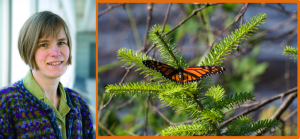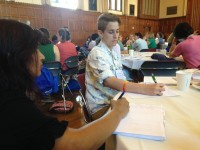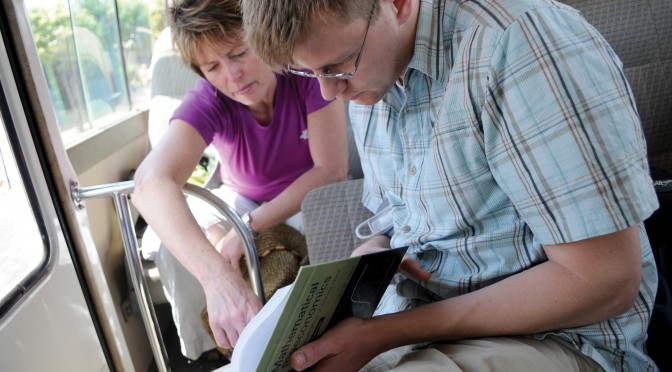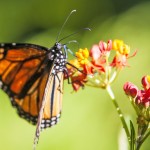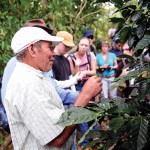Dr. Rikki Wagstrom first offered a SENCER math course at Metropolitan State University, a lead institution for NCSCE’s Engaging Mathematics initiative, in the fall of 2008. At the 2006 SENCER Summer Institute, she noticed that most SENCER courses were science courses. This inspired her to SENCERize a math course, Metro State’s Math 101, by integrating it with sustainability issues. Her course design was informed by the Scholarship of Teaching and Learning (SoTL). SoTL encourages instructors to research how their teaching methods affect learning and then publicize their findings, helping to advance both the teaching and learning aspects of education.
“Using a SoTL approach forced me to think strategically about the course design,” Wagstrom says. “I knew I wanted to integrate sustainability topics into the Math 101 course, ultimately to investigate the impact on student learning. So I considered from the very beginning what aspects of student learning I was interested in studying and immediately developed preliminary assessment instruments. Having these end targets in my mind helped me focus, structure, and revise the curriculum. My SoTL work made me much more aware of the relationship between how I approach new topics and what students actually learn. By regularly evaluating my students’ work in conjunction with the SoTL project, I discovered how they made sense of the topics they were studying. I would then revise the curriculum in light of their experience and backgrounds, and outcomes subsequently improved.”
Another influence on Math 101’s SENCERization was Kennesaw State College’s Earth Algebra course, which teaches college-level algebra through the context of global warming. Earth Algebra was the result of a FIPSE-funded project. The principal investigators for the project conducted a study of the course’s effectiveness, and found that the civically centered curriculum caused students to make gains in both their views toward mathematics and their abilities to perform data analysis and mathematical modeling, while obtaining no less significant knowledge of algebra than students in traditional courses.
Dr. Wagstrom also conducted a study of her Math 101 course, but did so without the benefits of funding and collaborators, as the Kennesaw study had. Her results showed that integrating sustainability issues into her course was as effective at building students’ mathematical skills as a traditional algebra course, and often better. Additionally, it increased students’ confidence with, and interest in, the subject. An article describing Dr. Wagstrom’s research was published in the Summer 2010 issue of the peer-reviewed Science Education and Civic Engagement: an International Journal, and a detailed account of her study also appears as a chapter in Doing the Scholarship of Teaching and Learning in Mathematics.
The observed student-learning gains from Dr. Wagstrom’s Math 101 course led her to receive a Center for Teaching and Learning STEM grant from the Minnesota State Colleges and Universities system to expand her earlier work by creating a Math 102 course called Mathematics of Sustainability. This course counts for both a general education and college algebra credit, and covers mathematical topics from environmental, social, and economic perspectives.
Before she packages Mathematics of Sustainability into a teaching manual, which will be published online in December 2014 as part of the Engaging Mathematics initiative, she intends to add a two-part activity on monarch butterflies and a two-part activity on wind energy that will explore both the science and financial viability of the energy source. She would also like to develop a curriculum related to ocean acidification.
In addition, Dr. Wagstrom plans on creating new resources for a Calculus II course that will teach students to model such topics as energy consumption, population dynamics, economic multipliers, the case for buying local, and debt. She will begin developing the curriculum for this course during the fall 2014 and spring 2015 semesters. The course will be offered in spring or summer 2015, and packaged and published online by December 2015.
For updates on how Dr. Wagstrom’s course developments progress, check future issues of the eNews, and follow Engaging Mathematics on Twitter @MathEngaging to stay informed about the rest of the project.
The photograph above is licensed under Attribution-NonCommercial-ShareAlike 2.0. It appears here in its original form. © Copyright 2013 David Levinson “Monarch Butterfly on Milkweed” https://www.flickr.com/photos/davidspix/9253950982
Article originally published by Christine Marie DeCarlo on May 8, 2014.
